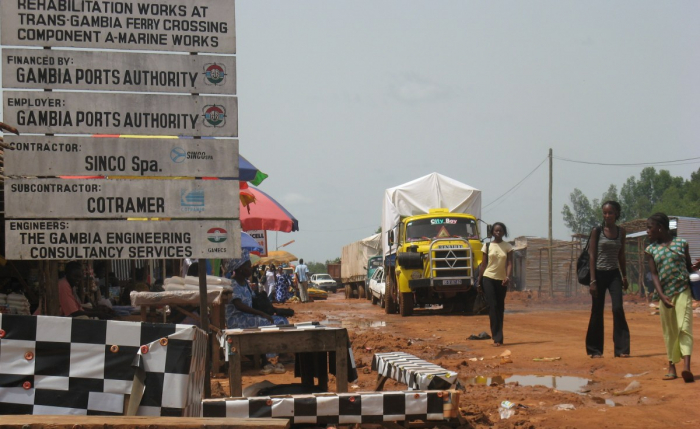
Many businesses registered a great loss resulting in huge revenue loss.
The government had levied several lockdowns on cross-border trade and restrictions of public gatherings which instigated women to lay down their businesses and become vulnerable. Many women had spent their business profits and faced with challenges to get another opening equilibrium for their businesses.
According to the United Nations Development Fund (UNDP) on the impact of Covid-19 on the country’s socio-economic in 2020, safeguarding the lives of the people especially the poorest and most vulnerable is the immediate priority of the Government and the United Nations.
“Given that almost half of The Gambia’s 2 million population(48.6%) live below the poverty line, a large number of the population is still vulnerable to shocks and a crisis like COVID-19 will move most of the vulnerable populations back into poverty while increasing vulnerability for others. In such situations, women and children tend to be more adversely affected mostly because of the gendered nature of the informal sectors,” the report stated.
Speaking to some businesswomen, Fatou Manneh, a resident of Bakau, expressed dismay on how Covid-19 restrictions were made to shut down her business. She said it led to the collapse of many businesses and women are mostly affected because they mostly depend on clothes and shoe business, which are purchased from Dakar, the capital city of Senegal.
“The lockdown has affected my business and it now collapses. I used to buy wholesale clothes and shoes in Senegal and sell them to my customers within the Serrekunda area but that doesn’t take place because of the pandemic,” Mrs. Manneh stated.
She further highlighted that the government restrictions on public gatherings, the operation of businesses, and the ban on cross-border travel are among the key issues that contributed to the collapse of her business.
“Now that these strict restrictions have left me penniless, I find it difficult to get something to solve my problems and that of my children. The business used to help my husband a lot when it comes to expenditure but the baton has changed and he has to be responsible for all family spending alone,” she said.
She concluded by calling on the government to support fallen businesses, especially the ones operated by women.
Haddy Cham, residing in Tallinding, also narrated a similar scenario, while indicating that the Covid-19 pandemic increased the poverty level of the poor. She said Senegal was her source of income but when borders were closed, her business ceased and she finds it difficult to supply her clients.
“I ventured in cloth business but the government’s restrictions of many times denied me from crossing Senegalese borders to purchase my goods. At some point, I couldn’t lay down my business and folded my hands like that. I later realised nothing was coming anymore, then I decided to involve myself in another business,” she said.
She added that the business she later involved herself in was dysfunctional because of the government's strict measures to cope with the pandemic. Mrs. Cham stated that she was involved in petty business at the Latrikunda Market but quit.
“People like me have suffered a lot during the pandemic and the government should assist us with some financial support to start our businesses. The government should try to give an open loan scheme for women vendors in order to uplift their business,” she said.
The border between The Gambia and Senegal was first closed on Monday 23 March 2020 for a period of 21 days, when the government disclosed that the closure will not affect essential services, such as movement of security personnel, foodstuff, medical services, related items and equipment between the two countries. Senegal is The Gambia’s only land neighbour and all ground trade between The Gambia and the rest of the world essentially has to pass through the Senegambian borders.
This story was produced with support from Journalists for Human Rights (JHR), through its Mobilizing Media in the Fight Against COVID-19 in partnership with Mai-Media and The Point.





